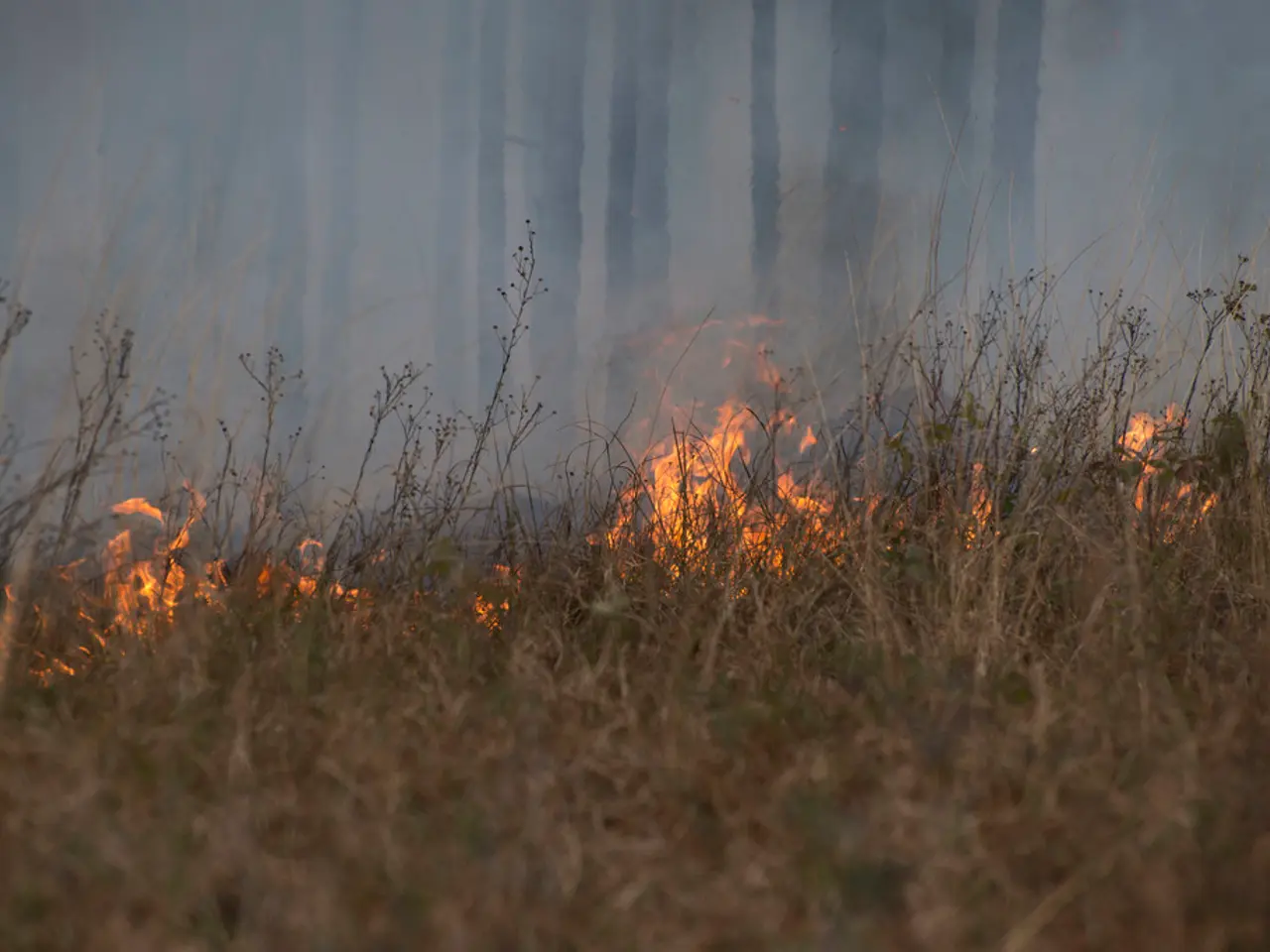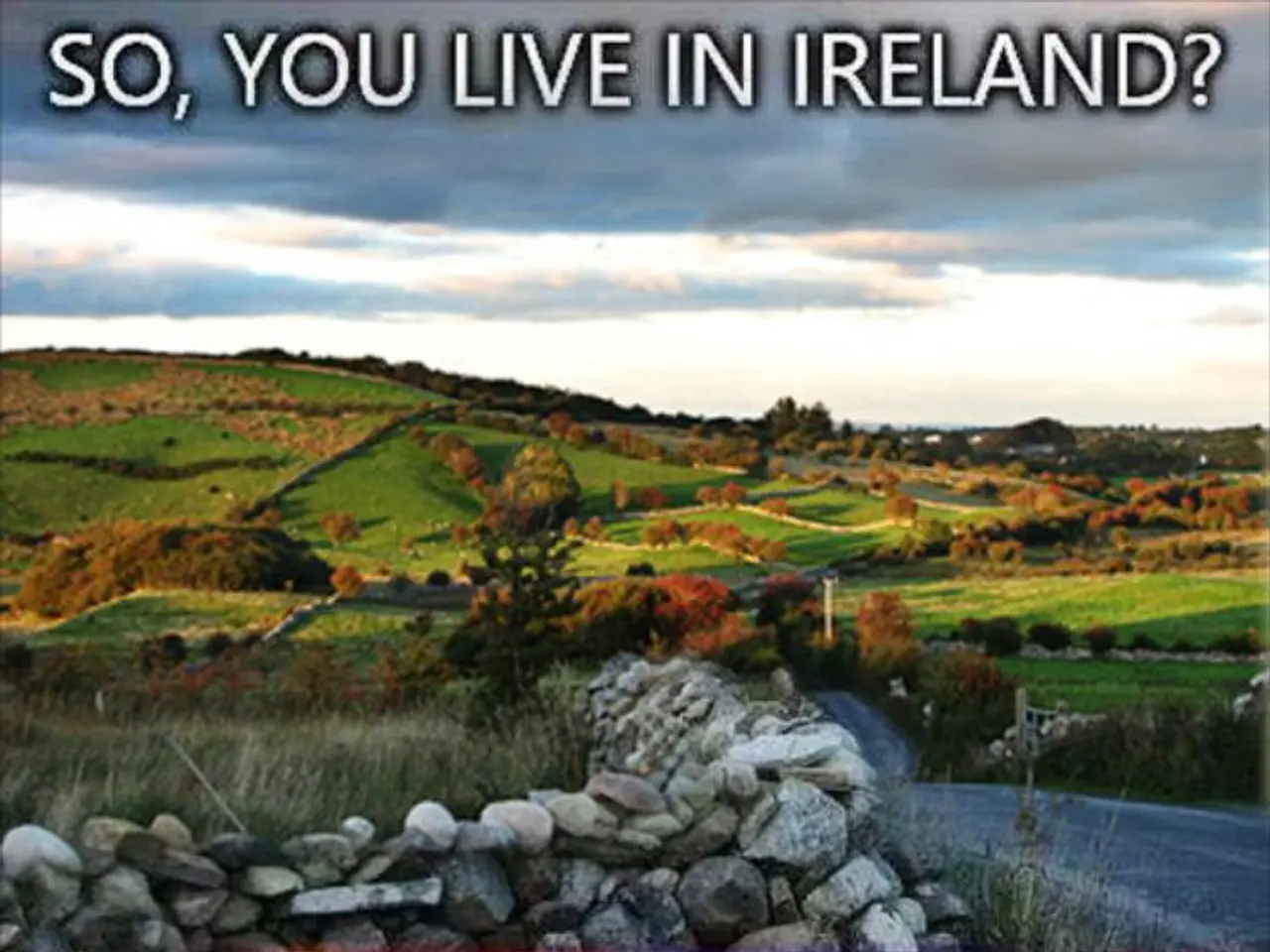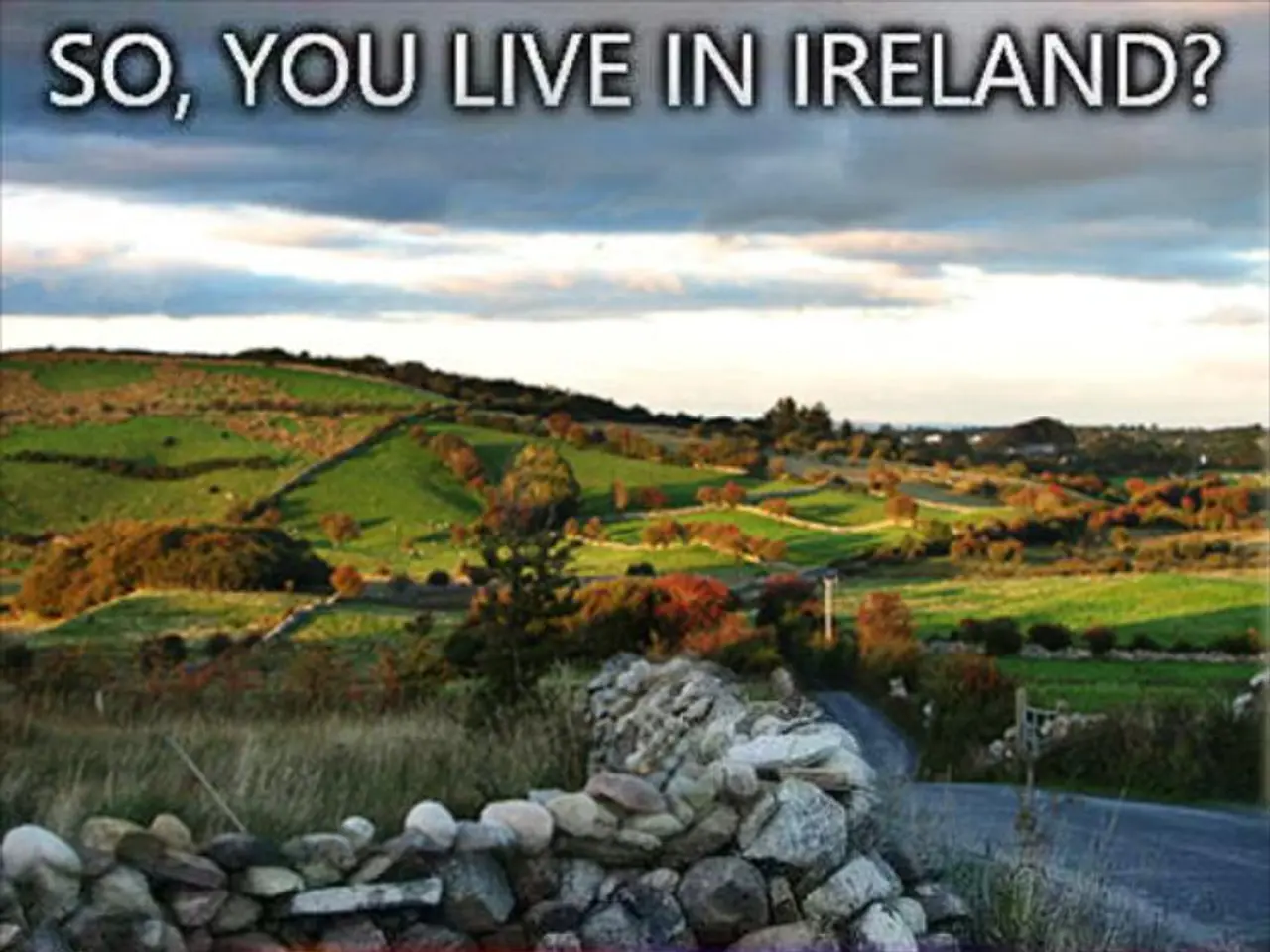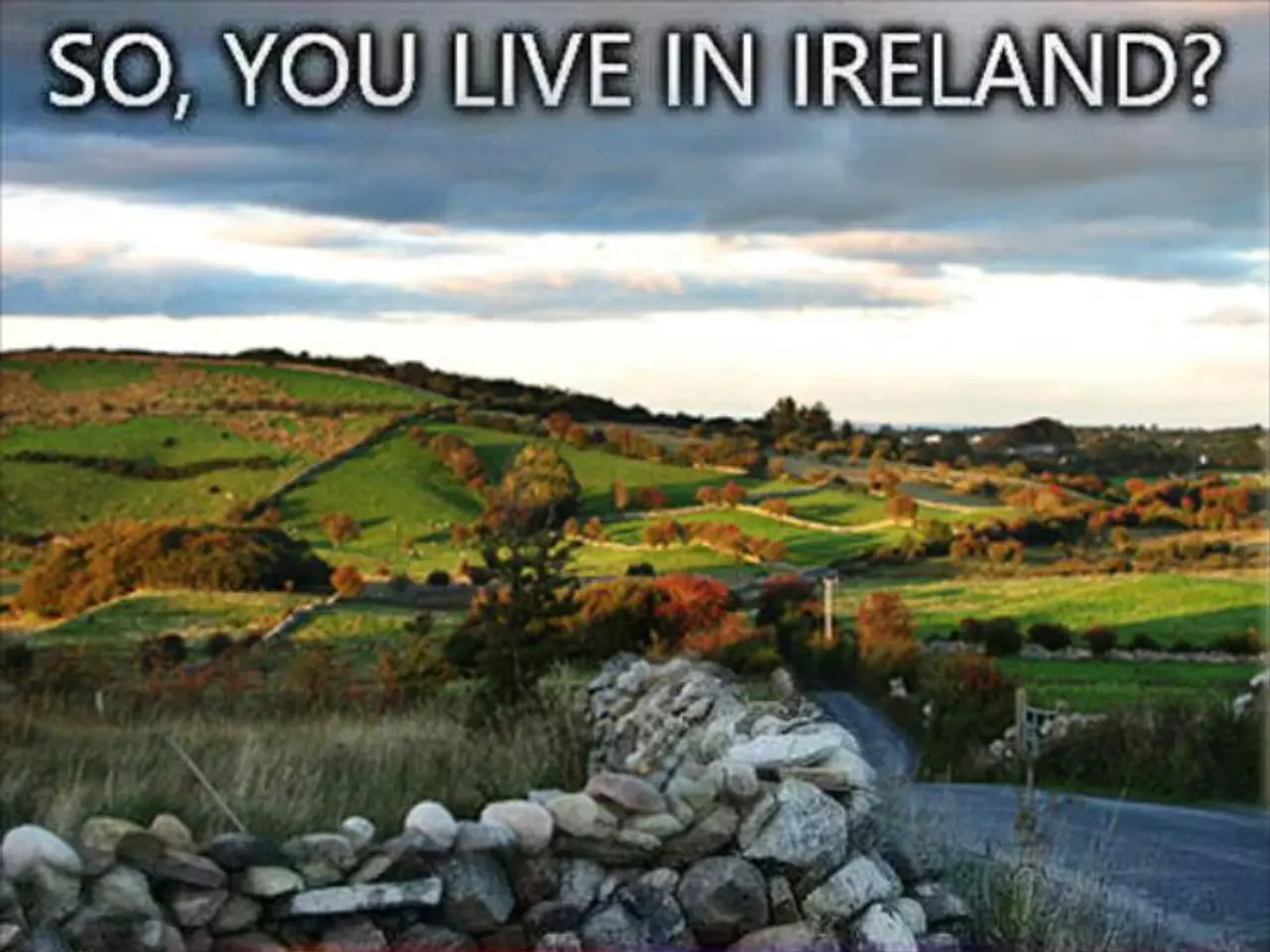Firefighters engage in a life-threatening firefight against a raging inferno close to the city of Athens in Greece.
Headline: Mediterranean Wildfires Rage On: Calls for Collaboration and Policy Reforms Amid Climate Change Challenges
The Mediterranean region is currently grappling with a series of devastating wildfires, with Greece and Turkey at the forefront of the crisis. The fires, fueled by extreme heatwaves, record dryness, and volatile winds, have resulted in numerous casualties, property damage, and the loss of precious farmlands.
In Greece, a wildfire broke out on Friday in Keratea, a rural area some 43 kilometers southeast of Athens. Despite efforts to contain the blaze, the fire department reported that while it has weakened, there are still active pockets. Tragically, the remains of an elderly man were found in a burned-out structure near Keratea, and the wildfire has already resulted in at least three deaths.
Similarly, in Turkey, hundreds of people were evacuated from areas near the wildfires in Canakkale, and the strong coastal winds caused the deaths of two Vietnamese tourists on the Cycladic island of Milos.
The fires in the Mediterranean region have become more destructive in recent years due to climate change, according to scientists. Last month was the hottest July in Turkey in 55 years, and the country, along with other Mediterranean countries, is known for its hot and dry summers, often referred to as "wildfire hot spots."
Authorities in wildfire-prone areas, including Greece, are promoting preparedness through emergency communication services and issuing real-time alerts to residents and travelers. Tourists are advised to monitor warnings, prepare emergency "grab bags," carry water, and adjust outdoor activities to reduce risk during heatwaves.
Current measures and proposals to prevent and combat wildfires in Greece and neighboring countries involve a mix of emergency response coordination, improved prevention strategies, and calls for long-term policy reforms. Greece, along with Spain, Bulgaria, Montenegro, and Albania, has activated the EU Civil Protection Mechanism to provide mutual aid during intense wildfire seasons, facilitating resource sharing and coordinated firefighting efforts.
Firefighting teams are adapting tactics to confront unprecedented fire behaviors driven by extreme heatwaves, record dryness, and volatile winds. However, there is growing consensus on the urgent need to bolster preventive measures, institutional capacity, rural land management, and data-driven policy frameworks to effectively reduce wildfire incidence and impact.
The European Parliament and Commission have issued reports recommending enhanced wildfire resilience through increased funding for wildfire risk management, technical assistance for affected regions, and integrated approaches to climate adaptation and rural policies. WWF Greece emphasizes the need for comprehensive investigation and documentation of wildfire causes and for public accountability and stronger political determination to address systemic weaknesses in wildfire policy and prevention.
There are calls for authorities to invest in artificial intelligence and satellite monitoring to spot fires before they spread. In a concerning development, the Dardanelles Strait, linking the Aegean Sea with the Sea of Marmara, was temporarily shut in both directions due to wildfires in Turkey.
As the region braces for a continued high risk of wildfires until October, it is clear that a coordinated and comprehensive approach is needed to address this pressing issue, with a focus on prevention, adaptation, and long-term policy reforms in the face of climate change challenges.
- The media has been covering the ongoing Mediterranean wildfires, particularly in Greece and Turkey, intensely, highlighting calls for collaboration and policy reforms in response to the climate change challenges.
- Environmental scientists have pointed out that the increasing destructiveness of wildfires in the Mediterranean region is a direct consequence of climate change, making it crucial for the region to strengthen preventive measures and institutional capacity.
- In a bid to combat wildfires effectively, the European Commission has recommended increased funding for wildfire risk management, technical assistance for affected regions, and integrated approaches to climate adaptation and rural policies.
- To enhance the early detection of wildfires, there are calls for authorities to invest in artificial intelligence and satellite monitoring technology.
- In the general news, it was reported that the Dardanelles Strait was temporarily closed due to wildfires in Turkey, causing traffic disruptions in the region.








